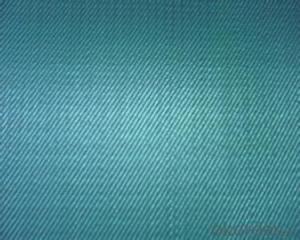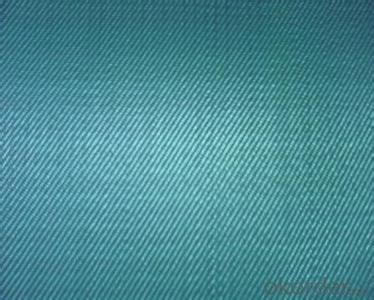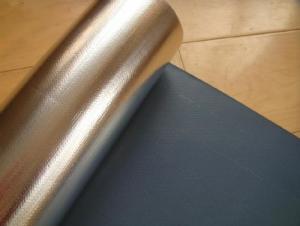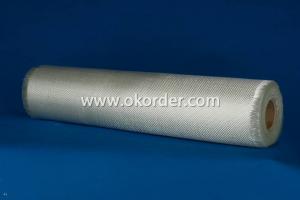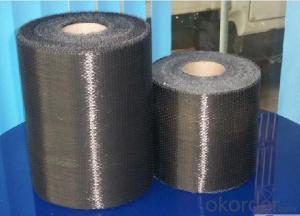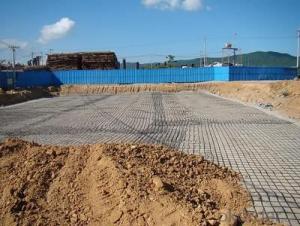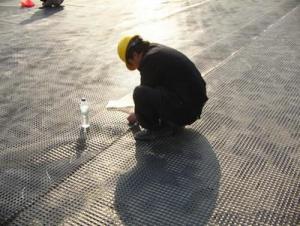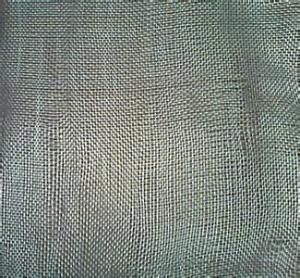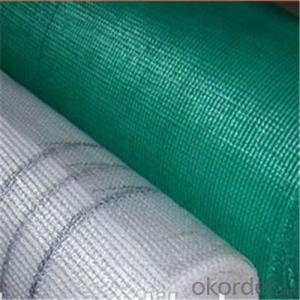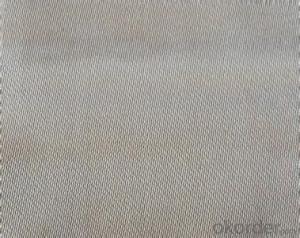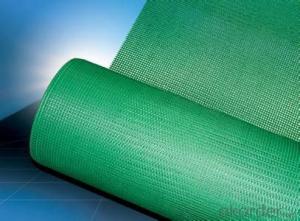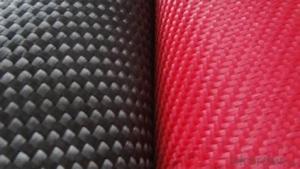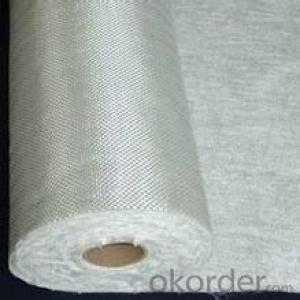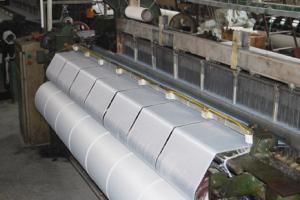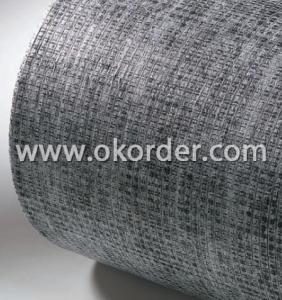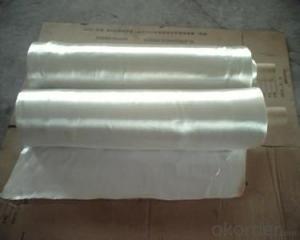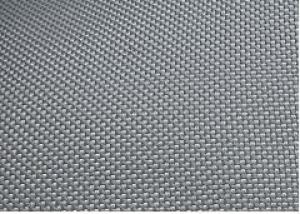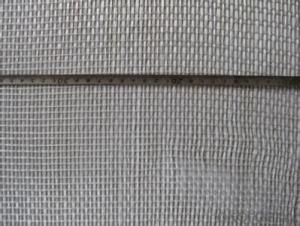Silica Electric Fiberglass Waterproofing Fabric Cloth
- Loading Port:
- China Main Port
- Payment Terms:
- TT OR LC
- Min Order Qty:
- -
- Supply Capability:
- -
OKorder Service Pledge
Quality Product, Order Online Tracking, Timely Delivery
OKorder Financial Service
Credit Rating, Credit Services, Credit Purchasing
You Might Also Like
Quick Details
| Place of Origin: | Brand Name: | Model Number: | |||
| Application: | Weight: | Width: | |||
| Mesh Size: | Weave Type: | Yarn Type: | |||
| Alkali Content: | Standing Temperature: | desity of warp: | |||
| desity of wefy: |
Packaging & Delivery
| Packaging Detail: | opp bag then carton box |
| Delivery Detail: | 15-20days after received deposit |
Specifications
1.temperature of fireproof:1770-2000
2.breaking strength:2100N/50NM
3.texture:plain weave
- Q: Can fiberglass fabric be painted?
- Fiberglass fabric has the ability to be painted. However, in order to ensure proper adhesion, it is crucial to adequately prepare the surface beforehand. This typically entails cleaning the fabric to eliminate any dirt, dust, or oils, and subsequently applying a primer specifically formulated for fiberglass surfaces. Once the primer has dried, it is then possible to proceed with the application of an appropriate paint on the fiberglass fabric. It is imperative to select a paint that is compatible with the particular type of fiberglass fabric being utilized, as well as one that is specifically designed for the intended purpose, whether it be for indoor or outdoor use. Moreover, it is advisable to apply multiple thin coats of paint instead of a single thick coat to attain the optimum outcome.
- Q: Problems in making FRP models and models
- The higher precision is the three-dimensional engraving machine, but this machine can generally do very limited volume, can not do big things. This engraving machine usually needs to be polished again after making the bottom mold
- Q: Can fiberglass fabrics be used for reinforcement in building panels?
- Fiberglass fabrics are suitable for reinforcing building panels. They are known for being both strong and lightweight, which is why they are commonly used in construction. Their strength-to-weight ratio and durability make them an excellent choice. When fiberglass fabrics are used as reinforcement in building panels, they add structural integrity and increase the overall strength of the panel. To create a composite material that is strong, rigid, and resistant to environmental factors, the fabric is typically embedded in a resin matrix like epoxy or polyester. Furthermore, fiberglass fabrics are versatile and can easily be molded or shaped into complex forms, making them suitable for a wide range of building panel applications.
- Q: How does fiberglass fabric handle chemicals and solvents?
- Fiberglass fabric boasts outstanding resistance to a broad spectrum of chemicals and solvents. Given its non-reactive nature and remarkable chemical resistance, fiberglass is an ideal material for industries that handle corrosive substances. The composition of fiberglass fabric, comprising woven glass fibers, provides exceptional defense against chemical attacks. It exhibits high resistance to acids, bases, and organic solvents, rendering it suitable for applications in chemical processing plants, laboratories, and oil refineries, where exposure to corrosive chemicals is common. One of the key advantages of fiberglass fabric lies in its ability to maintain physical integrity and mechanical strength even when exposed to various chemicals and solvents. In contrast to other materials that may degrade or become brittle upon contact with certain substances, fiberglass fabric remains stable and durable. This ensures its ability to withstand harsh conditions and perform effectively over extended periods. Another benefit of fiberglass fabric lies in its low permeability to chemicals and solvents. As a result, it acts as a barrier, preventing the passage of harmful substances through its surface. This property proves particularly valuable in applications where containment is crucial, such as storage tanks, pipelines, and chemical-resistant linings. In addition to its chemical resistance, fiberglass fabric also offers other desirable properties. It is lightweight, flexible, and exhibits excellent thermal insulation. These characteristics make it a versatile material applicable in a wide range of situations that require both chemical resistance and structural integrity. However, it is worth noting that while fiberglass fabric is highly resistant to most chemicals and solvents, there are exceptions. Certain potent acids, like hydrofluoric acid, can attack fiberglass and cause degradation. Additionally, prolonged exposure to solvents such as acetone or chloroform may lead to fabric swelling or softening. All in all, fiberglass fabric proves to be a reliable and durable material capable of withstanding a wide range of chemicals and solvents. Its excellent chemical resistance, coupled with its other advantageous properties, render it a preferred choice in industries where protection against corrosive substances is paramount.
- Q: Can fiberglass fabric be used for making flexible hoses?
- Yes, fiberglass fabric can be used for making flexible hoses. Fiberglass fabric is known for its high strength and flexibility, making it a suitable material for various applications, including the manufacturing of flexible hoses. The fabric can be woven into a flexible structure, allowing it to withstand bending, twisting, and stretching without losing its integrity. Additionally, fiberglass fabric is resistant to high temperatures, chemicals, and abrasion, making it ideal for use in hoses that transport fluids, gases, or even solids. Its durability and flexibility make it a popular choice in industries such as automotive, aerospace, and construction, where hoses are subjected to demanding conditions.
- Q: Can fiberglass fabric be used for insulation in power distribution facilities?
- Indeed, insulation in power distribution facilities can utilize fiberglass fabric. This incredibly versatile material boasts remarkable thermal insulation properties. With its resistance to high temperatures, it effectively inhibits heat transfer, rendering it suitable for power distribution facility insulation. Furthermore, fiberglass fabric is fireproof, an essential feature in areas housing electrical equipment. Its durability, flexibility, and capacity to withstand adverse conditions establish it as a viable option for power distribution facility insulation.
- Q: Can fiberglass fabric be used for reinforcement in wind turbine towers?
- Certainly, wind turbine towers can utilize fiberglass fabric for reinforcement purposes. Fiberglass fabric, being both sturdy and lightweight, possesses exceptional mechanical attributes, rendering it appropriate for a wide range of structural uses. In the case of wind turbine towers, which must endure substantial mechanical strain and dynamic loads, employing fiberglass fabric to reinforce the tower structure and fortify its strength and stability is recommended. Moreover, the corrosion-resistant nature of fiberglass fabric is particularly significant for wind turbine towers that face inclement weather conditions. All in all, fiberglass fabric serves as a dependable and efficient option for reinforcement in wind turbine towers.
- Q: How do fiberglass fabrics perform in terms of heat resistance?
- Known for their excellent heat resistance properties, fiberglass fabrics have the ability to withstand high temperatures without losing structural integrity. With a high melting point due to the inherent nature of glass fibers, these fabrics can handle temperatures up to 1000 degrees Fahrenheit (537 degrees Celsius) without significant deterioration. The heat resistance of fiberglass fabrics proves beneficial in various applications, particularly in industries like aerospace, automotive, and construction where exposure to high temperatures is common. These fabrics are widely used as insulation materials to protect against heat transfer and potential fire hazards. Furthermore, fiberglass fabrics demonstrate good thermal stability, meaning they do not shrink or deform when exposed to temperature fluctuations. This characteristic makes them ideal for applications that require thermal expansion and contraction considerations. In addition, fiberglass fabrics possess low thermal conductivity, meaning they do not readily transfer heat. This property allows them to act as effective thermal barriers, preventing the passage of heat and ensuring temperature control and insulation. In conclusion, fiberglass fabrics can be relied upon for their exceptional heat resistance. They are capable of withstanding high temperatures, maintaining structural integrity, and providing effective thermal insulation, making them a suitable choice for various applications involving high heat.
- Q: How does fiberglass fabric perform in weight-to-strength ratio?
- Fiberglass fabric possesses a weight-to-strength ratio that is relatively high, indicating its lightweight nature alongside significant strength and durability. This attribute stems from the unique composition of fiberglass, comprising minute glass fibers interwoven together. These fibers are incredibly robust and inflexible, enabling the fabric to withstand substantial levels of tension and compression. When compared to materials like steel or aluminum, fiberglass fabric is considerably lighter while still maintaining comparable strength. This characteristic renders it an optimal selection for situations where weight holds critical importance, such as in the aerospace or automotive sectors. Furthermore, the fabric's high strength permits the construction of structures and components capable of enduring heavy loads without excessive weight addition. By adjusting the weave pattern and the density of the glass fibers, the weight-to-strength ratio of fiberglass fabric can be further optimized. For instance, a tighter weave or increased fiber density can enhance the fabric's strength, albeit potentially increasing its weight. Conversely, a looser weave or reduced fiber density can reduce weight, albeit potentially compromising some strength. All in all, fiberglass fabric exhibits commendable performance in terms of its weight-to-strength ratio, presenting a lightweight and robust material applicable across a broad range of fields. Its versatility and durability render it a popular choice within various industries where the balance between weight and strength holds crucial significance.
- Q: Can fiberglass fabric be used for insulation in underground structures?
- Yes, fiberglass fabric can be used for insulation in underground structures. Fiberglass fabric is a popular choice for insulation due to its excellent thermal properties and resistance to moisture. It is commonly used in various applications, including underground structures such as basements, tunnels, and underground storage facilities. The fabric is typically installed as a layer between the structure's walls or ceiling and its interior finish, providing a barrier that helps to prevent heat loss or gain and maintain a comfortable temperature inside the structure. Additionally, fiberglass fabric is lightweight, flexible, and easy to install, making it a convenient option for insulating underground spaces.
Send your message to us
Silica Electric Fiberglass Waterproofing Fabric Cloth
- Loading Port:
- China Main Port
- Payment Terms:
- TT OR LC
- Min Order Qty:
- -
- Supply Capability:
- -
OKorder Service Pledge
Quality Product, Order Online Tracking, Timely Delivery
OKorder Financial Service
Credit Rating, Credit Services, Credit Purchasing
Similar products
Hot products
Hot Searches
Related keywords
